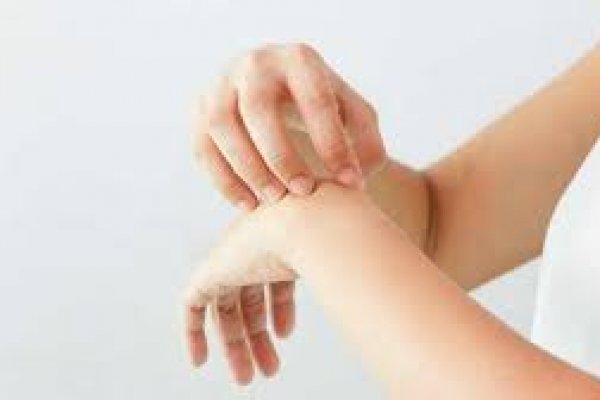September 14th is World Atopic Dermatitis Day, one of the most common non-communicable skin diseases that has an emotional and social impact on those who live with it.
The aim is to raise awareness and educate people about the emotional, social and workforce impacts of this pathology.
What is atopic dermatitis?
Atopic dermatitis or atopic eczema is a chronic inflammatory skin disease characterized by severe itching anywhere on the body, associated with skin lesions and wounds.
It is not contagious and can be inherited because either one or both parents have atopic dermatitis. About 60% of cases are diagnosed in the first year of life, affecting both children and adults.
Some of the causes associated with this pathology are environmental factors such as cold, sudden changes in temperature, and dust. On the other hand, the use of synthetic fibers and caustic detergents may have an impact.
The main symptoms of atopic dermatitis are as follows:
Red or brown spots.
Dry, cracked, or scaly skin (xerosis).
Recurrent eczema attacks.
Pruritus (severe itching or itching).
Your baby may develop small bumps on their cheeks.
It can become moderate to severe and is characterized by violent outbreaks that can harm the patient’s health and are associated with associated conditions such as asthma, allergies, allergic conjunctivitis, nasal polyps, and sinusitis.
Some of the consequences of this disease can greatly impact a patient’s quality of life, such as sleep disturbances, social distancing, and for children, it can affect their school performance.
Diagnosis and treatment of atopic dermatitis
The diagnosis of atopic dermatitis is made by a specialist (dermatologist) through a skin examination to determine the patient’s personal and family history of atopic disease.
Skin testing may also be used to determine skin reactivity.
When treating this pathology, the main recommendation is to maintain good skin hygiene to avoid bacterial contamination. Medical treatment of this pathology includes the following medical indications, which will depend on the extent of skin lesions in each patient:
Use antibiotics or corticosteroid creams to control bacterial infections and skin inflammation.
Treat with oral antihistamines and corticosteroids to relieve itching and inflammation.
Use a corticosteroid moist dressing.
Phototherapy (light therapy).
Provide emotional support through psychotherapy.
We have mentioned below some additional suggestions to help manage this skin condition:
See a dermatologist regularly.
For short baths, use warm water and atopic skin soap.
After bathing, the skin should be dried without rubbing.
Avoid contact with allergens.
Moisturize your skin daily with a dermatological cream.
Use 100% cotton clothing.
Avoid extreme temperatures.
Use sunscreen for your skin.
Follow a balanced food diet and avoid foods that may cause allergies.

